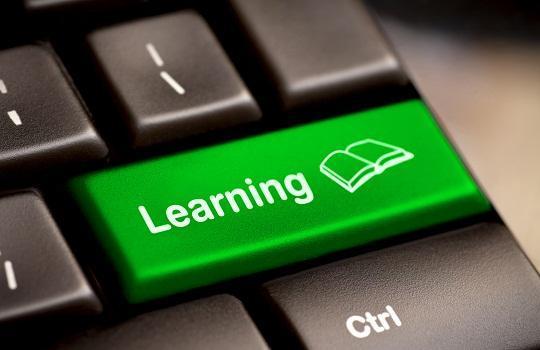How quickly do you learn? Are you one of those people who picks things up with ease? Feel slightly smugly in training courses? Don’t need anything explaining twice?
Well here’s a way of thinking about learning that might give you pause for thought.
One way of categorising different types of learning is to distinguish between ‘Quick Insight’ and ‘Gradual Improvement’.
- Quick insight learning is when you pick things up through learning a new theory or by putting ideas together to come up with one of those ‘Aha’ moments.
- Gradual improvement is where skills and knowledge are acquired more slowly through practice. We all use both but people often have an aptitude, and a preference, for one over the other.
Perhaps unsurprisingly, bright people often prefer quick insight learning and, when the distinction is explained to them, often feel good about themselves for being quick learners. But here’s where pride comes before a fall. Because only certain things can be learnt in this way.
When you can’t do it all in your head
Quick insight learning is fantastic for learning theory, picking up systems, working out what’s going on in a situation. Anything, in fact, that you can do entirely in your head. But as soon as you introduce a physical element into whatever you’re trying to learn, quick insight is of limited use. Art, crafts, sport, music, cooking, dancing – many of the things which make life worthwhile – all require a hefty dollop of gradual improvement learning. Even if you are a dedicated workaholic, who shuns anything as frivolous as a hobby, work related skills, such as public speaking, require practice.
I meet a lot of quick insight learners who – once they’ve swiftly absorbed the concept – say they don’t have the patience for gradual improvement learning. In my experience, this masks a deeper truth. People who think of themselves as smart struggle to tolerate the discomfort of being inept.
Missing out the uncomfortable bit
You may have come across the four stages of learning, which we move through when we learn:
- Unconscious incompetence – I don’t even know that I don’t know that
- Conscious incompetence – I know I can’t do that
- Conscious competence – I can do this but I really have to think about it
- Unconscious competence – I don’t even have to think about this anymore
Quick insight learning allows people to jump straight from ‘unconscious incompetence’ to at least a degree of ‘conscious competence’. You don’t know something, then you learn about it, assimilate it into your mental model of the world and you’re good to go. Say you discover a new way of categorising job applicants. You grasp the idea, apply it to your pool of applicants and a whole new way of thinking about potential candidates opens up. I’ve seen people retrospectively beat themselves up for not already knowing the thing they just learned – ‘How could I have been so ignorant/naïve? Why did I not see this before?’ – but they do this from the security of knowing that they’ve got it now. Their view of themselves as capable remains intact.
Acknowledging your incompetence
Compare that with sitting at a piano wanting to play Rachmaninoff yet struggling to master Twinkle Twinkle Little Star. Now you really have to face your own incompetence and that can bring up a lot of uncomfortable feelings, from frustration to embarrassment and even shame. And that’s when many people give up. I’ve met a lot of successful, capable people who admit that they avoid even trying things that they don’t think they’ll be any good at. I sometimes wonder whether this is why the stereotypical geek is often bad at sport – used to picking things up quickly and progressing from there, they don’t put in the hours of practice that it takes to master a physical skill, especially if it didn’t come naturally to them in the first place.
Two ways of seeing progress
Of course, gradual improvement plays a part in developing skills which you may acquire through quick insight. Let’s say you’re a fairly experienced psychometric test user and you go on a course to learn about a new assessment. It’s a good course, you grasp all the key concepts, you fit the new information into some mental model you have about assessment and you feel confident to use the new test. If you carry on using it and then look back after a year or so, you might realise that your interpretation and feedback is much more nuanced than it was when you first learnt it because of all the practice you’ve had. But generally you only recognise that in hindsight. At any given moment, you probably feel reasonably confident that you know what you’re doing.
With skills that require gradual improvement learning it’s the other way around. You have to start knowing what you’re aiming for, which may seem almost unattainable, and be satisfied with the small steps you take along the way. Mastering Twinkle Twinkle Little Star has to become a cause for celebration not proof that you still can’t play Rachmaninoff’s piano concerto.
Hubris and humility
Gradual improvement learning teaches people a lot about learning in general and about patience and humility. It can also give fast learners far greater respect for their steadier, slower colleagues, who tolerate the discomfort of being incompetent and have the perseverance to keep going where they might give up. So if you are a smart, fast-learner and you really want to stretch yourself, I wholeheartedly recommend taking up something you can only develop through practice – cake decorating, flamenco dancing, playing the trombone, doesn’t really matter what. You may be surprised what you learn about yourself in the process.












4 Responses
I suspect you don’t know many ‘geeks’
If you did, you could have asked one and he'd have told you – we're good at sport, but it has to be our sport. We generally don't like team games, partly because we view ball games as inherently childish, and partly because we're not team people. We don't like our chances of success or failure being predicated on the actions of a group of people we can't control. We'd always rather do than watch, and we don't understand the concept of caring who wins, unless we're playing.
Our sports are mostly solo or small groups – rock-climbing, power-kiting, ultimate frisbee, skateboarding or snowboarding. There's a distinct correlation between hackers and martial artists – both skills which require elegance and discipline to do properly. There's an even bigger correlation between programming ability and musical ability – almost every programmer I know is a musician of some sort.
We do love to learn. Geeks are never happier than when they've got something new to master, some new skill to practice. This is where the dichotomy comes in, because we love to learn, but we're terrible to teach. Because we insist on learning in our own way, at our own speed, and a lot of teachers and trainers just can't cope with that. I've taught around 20 people to professional level over the years. All 1-1, never in a class. Learning to adjust my speed and pattern to the learning speed and needs of a student is the hardest element for me, when it comes to teaching, coaching or mentoring. I don't know how to teach a class – for me, learning has to be up close and personal. That way, you can see the light go on when the student finally understands something, and you can see it go out when they don't and you know it's time to do something else.
I believe this is why so many training courses are hit-and-miss affairs – you go at the speed of the slowest participant, the fastest will be bored for half the day. Move the class at the speed of the fastest participant, and after the slowest has missed the first couple of concepts, they might as well go home as they're not going to be learning anything that day.
Singularly brilliant ideas
I'm way too smart. I grasp ideas ahead of their being elaborated, and my monkey mind quickly gets bored and moves on. This inhibits the repetitive patterning which forms memory, and I find returning to square one when recall is required quite frustrating. Meditative mindfulness – useless. I bought a unicycle*, and months on can ride it with a basic level of confidence. I'm unsure, but patience seems improved.
*Turning 55, I was concerned about maintaining general balance & motor skill
University
Reminds me of when I was revising for an exam at university. I recorded two facts and played them in a loop via earphones when I was at my desk for about two days. Seven years on I still remember them, no trouble 🙂
types of learning
As a child, a friend of mine was made to learn her 'times' table up to 25 x 25, including halves and quarters. This took years of repetition and mental testing, both written and oral, before she perfected it. Now in her late 70s, she can still beat anyone with a calculator!